Before you leave...
Take 10% off your first order
10% off
Enter the code below at checkout to get 10% off your first order
Contact us now via chat 👇
🎁 Free shipping for orders over €20!
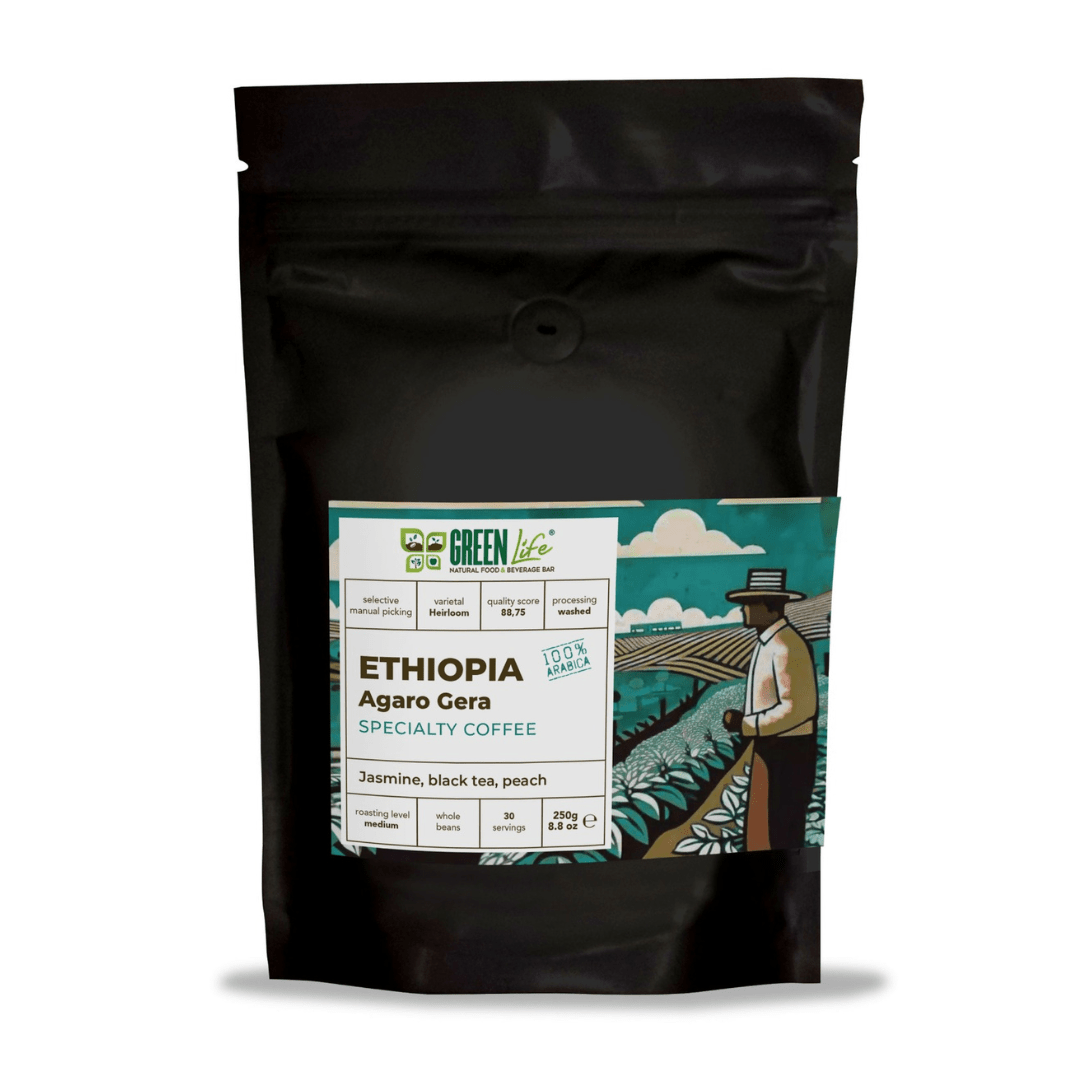
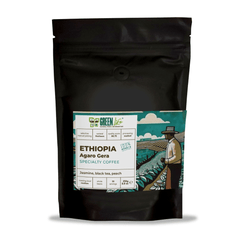
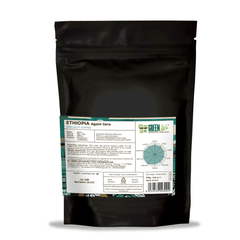
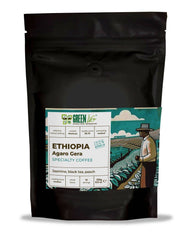
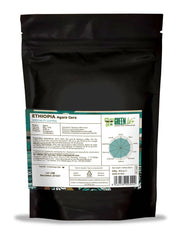
Couldn't load pickup availability
Jasmine, black tea, peach
Intense aromas of jasmine flowers characterize the aroma of this coffee that is completed on the palate with notes of black tea with bergamot; bright acidity, full body and a finish of ripe peach.
COFFEE DATA
Quality score: 88.75
Variety: Heirloom
Processing: Washed
Region: Agaric
Harvest: November – February
Altitude: 2000 m
Farm: Quedamesa smallholders
Producer: Duromina Cooperative

RECOMMENDED RECIPE
Based on the roasting style of our roasters Andrea and Fabrizio, we suggest two recipes, for espresso and for filter (V60) that you can use as a starting point to emphasize the flavors of this specific batch. You can also enjoy this coffee with other extraction methods, using our suggestions as a starting point to obtain the sensory nuances you prefer, to be adjusted based on the degree of grinding, the characteristics of the water and the equipment you use.


THE PRODUCER
Small producers Quedamesa
As often happens in African countries, coffee production is in the hands of small producers who belong to consortia and cooperatives and this is the case of the producers in the Quedamesa area, small owners with plots of land of up to 3 hectares.
Duromina Cooperative
In 2010, thanks to a government project that promoted training in agronomy, processing and facilities in the coffee sector through funding, the 320 producers of Quedamesa joined together in a cooperative with the aim of improving the production of their coffees and improving their lives; the name Duromina, chosen for the cooperative, in fact means “to improve one’s life” in the Afan Oromo language. Duromina, which carries out all the steps of coffee processing internally, is passionately committed to research, managing to obtain recognition for the quality levels of the processed coffees, which are always improving year after year. The Cooperative contributes to improving the standard of living of the local population by investing in building schools, basic necessities and roads to reach the less accessible places.
THE NATION
Ethiopia
Coffee in Ethiopia is simply different from coffee grown anywhere else in the world as the plant was not introduced but grew wild in the forests of the country. Legend has it that its discovery dates back to the beginning of 800 AD, in the western region of Kaffa; this is why Ethiopia is considered the cradle of coffee, the place where it all began, where we still find some of the best coffee in the world. Coffee production is generally carried out thanks to the work of many small farmers with less than 1 hectare of land each; in many cases these small farms are described as “coffee gardens” as the plants grow in an environment more similar to a garden than to agricultural land. There are some large private estates, as well as cooperative societies that group small and medium-sized farms. Only Arabica coffee is grown in Ethiopia, with a multitude of cultivated varieties that is unrivaled in the world. Coffee cultivation in Ethiopia represents about 70% of exports and involves about 15 million people in its supply chain.
THE REGION
Agaric
Nestled in the heart of Ethiopia, Agaro is a lush district that sits at an altitude of between 1500 and 2200 meters above sea level and the area is renowned for producing some of the most sophisticated and sought-after specialty coffees in Ethiopia. Although the country boasts a coffee history dating back to 800 AD, this area became famous starting in 1800 BC during the reign of Emperor Menelik II who, recognizing the potential of fertile soil and an ideal climate, promoted the cultivation of coffee to become a key production area for the Ethiopian economy. The combination of altitude, soil and microclimate, allows for the production of coffee with excellent aromatic profiles reminiscent of citrus and fruit in general, bright acidity, extreme sweetness and full body.
CULTIVAR
Heirloom
Heirloom refers to the regional indigenous varieties that grow naturally in the forests of Ethiopia; it is estimated that there are between six thousand and ten thousand varieties in Ethiopia, each with distinct characteristics that are further influenced by differences in growing conditions, processing methods, and farming techniques. Because of this great diversity and the lack of genetic testing, the term Heirloom is often used to encompass the different coffees from Ethiopia; specifically, it refers to one or more unknown varieties from the same batch.
THE PRODUCTION PROCESS
Harvesting the drupes
The coffee drupes are hand-picked to ensure the perfect level of ripeness of the fruit and delivered the same day to the washing station for processing.
Peel and pulp removal
The first processing phase consists in the mechanical removal of the peel and pulp of the fruit in order to separate the green coffee beans that will be subsequently fermented in water. The processing waste, peels and pulp, will be used as natural compost to nourish the plants.
Fermentation in water
The coffee beans are immersed in water in fermentation tanks, where they will remain for a period that varies from 12 to 24 hours depending on the external climate. After fermentation, the coffee beans are passed through special rinsing channels where the mucilage still present will be removed.
Drying
The coffee beans are now placed on raised beds (African bed) and left to dry in the sun for a period of time that varies from 3 to 4 weeks. This slow procedure will allow to obtain homogeneous beans with a final humidity percentage between 10% and 12%. Packaging and humidity reduction After drying, the coffees will be packaged in jute bags and stored in the warehouse for about 1 month; this process helps to further standardize the humidity percentage thus avoiding the risk of mold formation during maritime transport.
Decortication
Once the right level of humidity is reached, the parchment is removed from the coffee bean through a roller machine. The coffee is then placed permanently in jute bags and made ready for shipping.
While Green Life strives to ensure the accuracy of its product images and information, some manufacturing changes to packaging and/or ingredients may be pending update on our website. We recommend that you read labels, warnings and directions of all products before use and not rely solely on the information provided by Green Life.
Important Note: Delivery times may extend during holidays.
Customs Information:
EU Customers (including Greece) do not pay customs fees, since all products are shipped from Cyprus (an EU member state).
You may return most new, unopened items within 30 days of delivery for a full refund. We'll also pay the return shipping costs if the return is a result of our error (you received an incorrect or defective item, etc.).
You should expect to receive your refund within four weeks of giving your package to the return shipper. In many cases, you will receive a refund more quickly. This time period includes:
If you need to return an item, simply log in to your account, view the order under "Complete Orders" and click the "Return Item(s)" button. We'll notify you via e-mail once we've received and processed the returned item.
Thanks for subscribing!
This email has been registered!
Before making a purchase, please make sure to check out our Shipping & Delivery Policy.
If you have any questions about these terms, please contact us here .

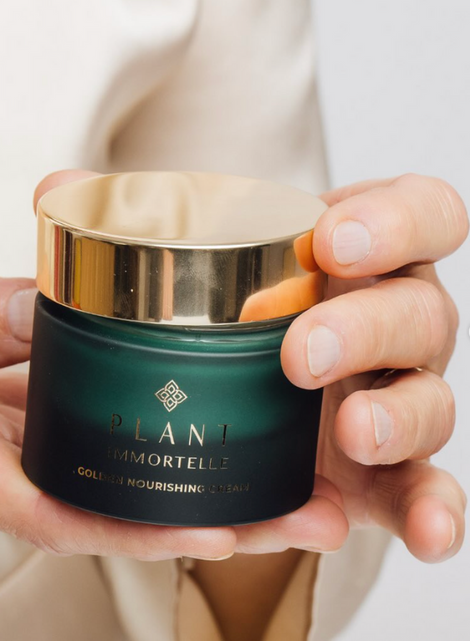
Take 10% off your first order
Enter the code below at checkout to get 10% off your first order